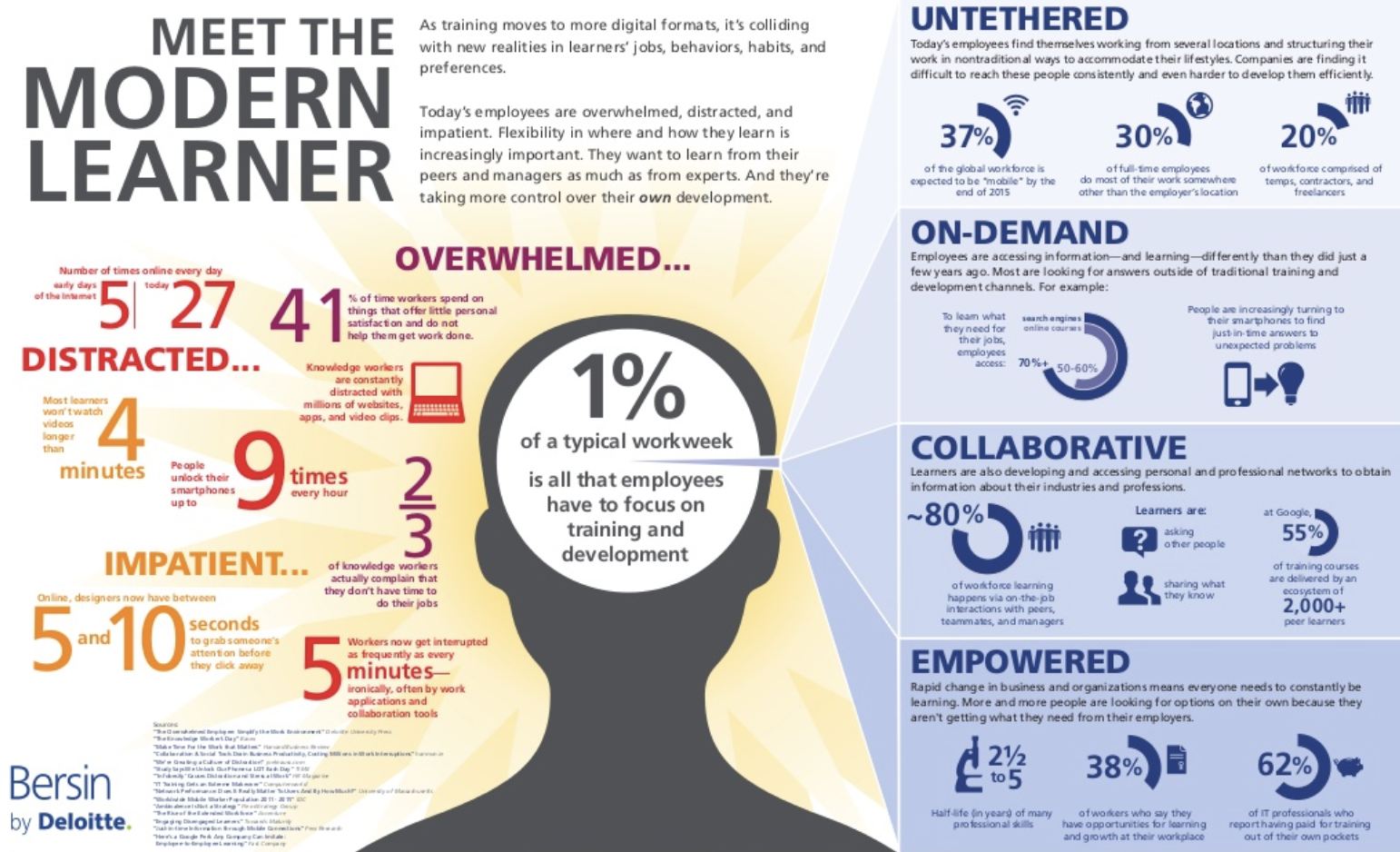For the past few years, online learning has shape-shifted a bit. E-learning platforms have become more personal, more nimble and more readily available on-the-go. Our more mobile workforce, flexible office space options, and, alas, disintegrating attention spans have also played a role in the shifting e-learning landscape. Finally, more and more people are conducting business via mobile device. As a result, there’s not much time, convenience or demand for content delivered to an entire department, company or industry via online training courses that requires people to sit for long periods of time ticking through multiple choice quizzes and reading long passages.
There has been a rise in the prevalence of apps and short videos that effectively deliver important material quickly. Engagement and retention come from games rather than quizzes, short texts rather than discussion forums and FaceTime rather than meeting platforms.
“Resources not courses”
Many people work remotely, and rely on quick answers to move projects forward, especially when deadlines loom large. Content for training purposes (like disseminating new HR policies or industry practices) must be presented in digestible chunks so learners can easily grab what they need to perform at their peak. Instructional designers can now spend valuable time crafting smart yet small lessons for text and video-based learning environments rather than creating behemoth courses and managing 24/7 chat rooms.
Other approaches that help facilitate microlearning include providing learners with small, structured blasts of material over a slightly extended period of time or as needed, content through brief videos and SMS-based instruction opportunities.
Assess and pilot new techniques
The days of just memorizing material to learn new concepts are essentially over. Research shows that training participants are truly engaged with real life challenges offering practical, convenient and visual components. The research also reveals that online training program participants are more likely to retain core information when it’s presented in a quick-hit yet potent manner.
As you take stock of your online training modes and goals, consider microlearning options for your teams. You could first inject texting short blasts of information for your people to use while on-the-go. Or, you could set up a YouTube channel with short (30 second to 2 minute) videos to creatively present core content. Before abandoning your company’s expensive online training platform, why not incorporate one of these new ways of learning into the curriculum? You’ll most likely discover more engagement and better results to accelerate your teams and projects.

